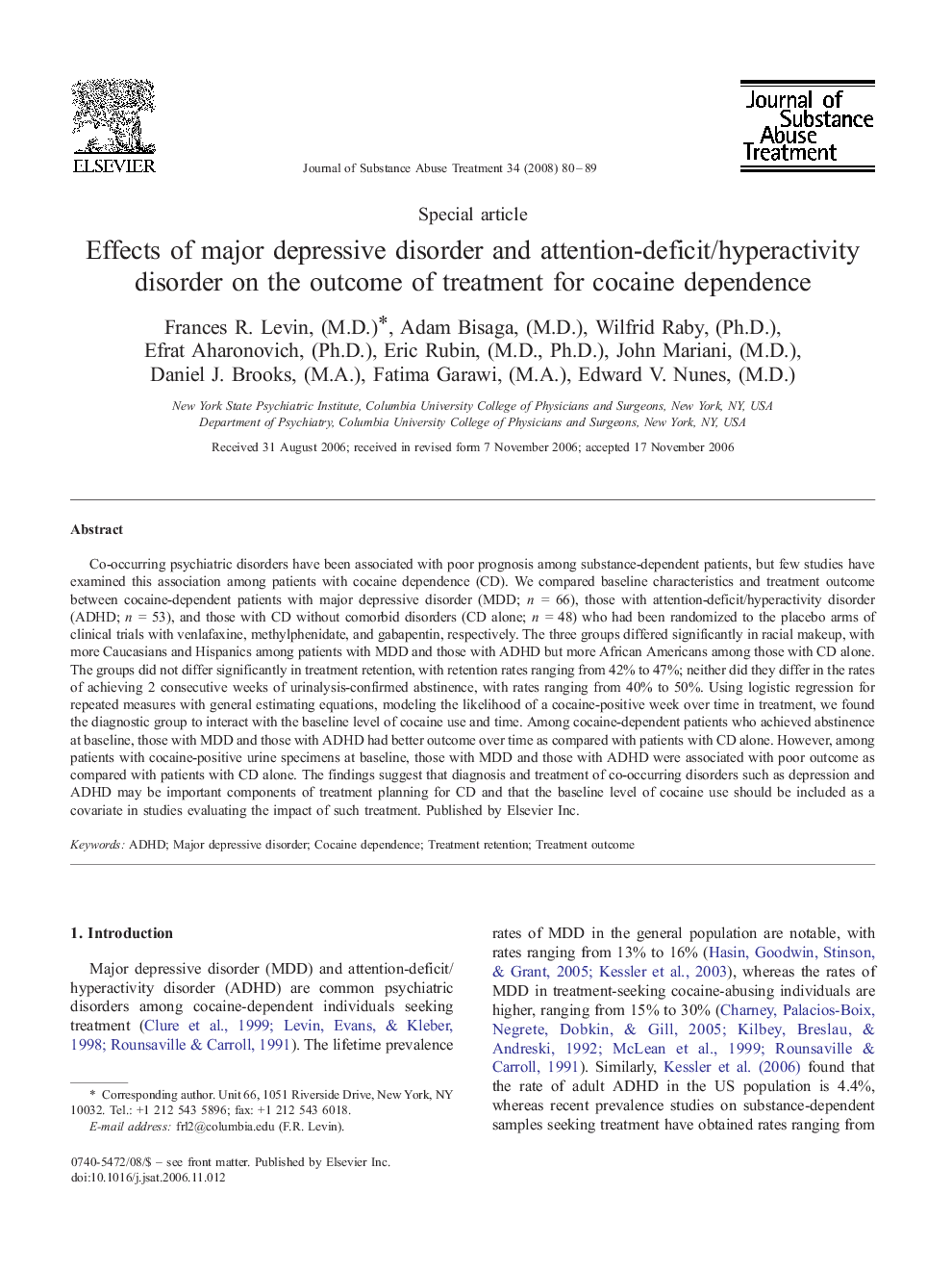| کد مقاله | کد نشریه | سال انتشار | مقاله انگلیسی | نسخه تمام متن |
|---|---|---|---|---|
| 328344 | 543145 | 2008 | 10 صفحه PDF | دانلود رایگان |

Co-occurring psychiatric disorders have been associated with poor prognosis among substance-dependent patients, but few studies have examined this association among patients with cocaine dependence (CD). We compared baseline characteristics and treatment outcome between cocaine-dependent patients with major depressive disorder (MDD; n = 66), those with attention-deficit/hyperactivity disorder (ADHD; n = 53), and those with CD without comorbid disorders (CD alone; n = 48) who had been randomized to the placebo arms of clinical trials with venlafaxine, methylphenidate, and gabapentin, respectively. The three groups differed significantly in racial makeup, with more Caucasians and Hispanics among patients with MDD and those with ADHD but more African Americans among those with CD alone. The groups did not differ significantly in treatment retention, with retention rates ranging from 42% to 47%; neither did they differ in the rates of achieving 2 consecutive weeks of urinalysis-confirmed abstinence, with rates ranging from 40% to 50%. Using logistic regression for repeated measures with general estimating equations, modeling the likelihood of a cocaine-positive week over time in treatment, we found the diagnostic group to interact with the baseline level of cocaine use and time. Among cocaine-dependent patients who achieved abstinence at baseline, those with MDD and those with ADHD had better outcome over time as compared with patients with CD alone. However, among patients with cocaine-positive urine specimens at baseline, those with MDD and those with ADHD were associated with poor outcome as compared with patients with CD alone. The findings suggest that diagnosis and treatment of co-occurring disorders such as depression and ADHD may be important components of treatment planning for CD and that the baseline level of cocaine use should be included as a covariate in studies evaluating the impact of such treatment.
Journal: Journal of Substance Abuse Treatment - Volume 34, Issue 1, January 2008, Pages 80–89